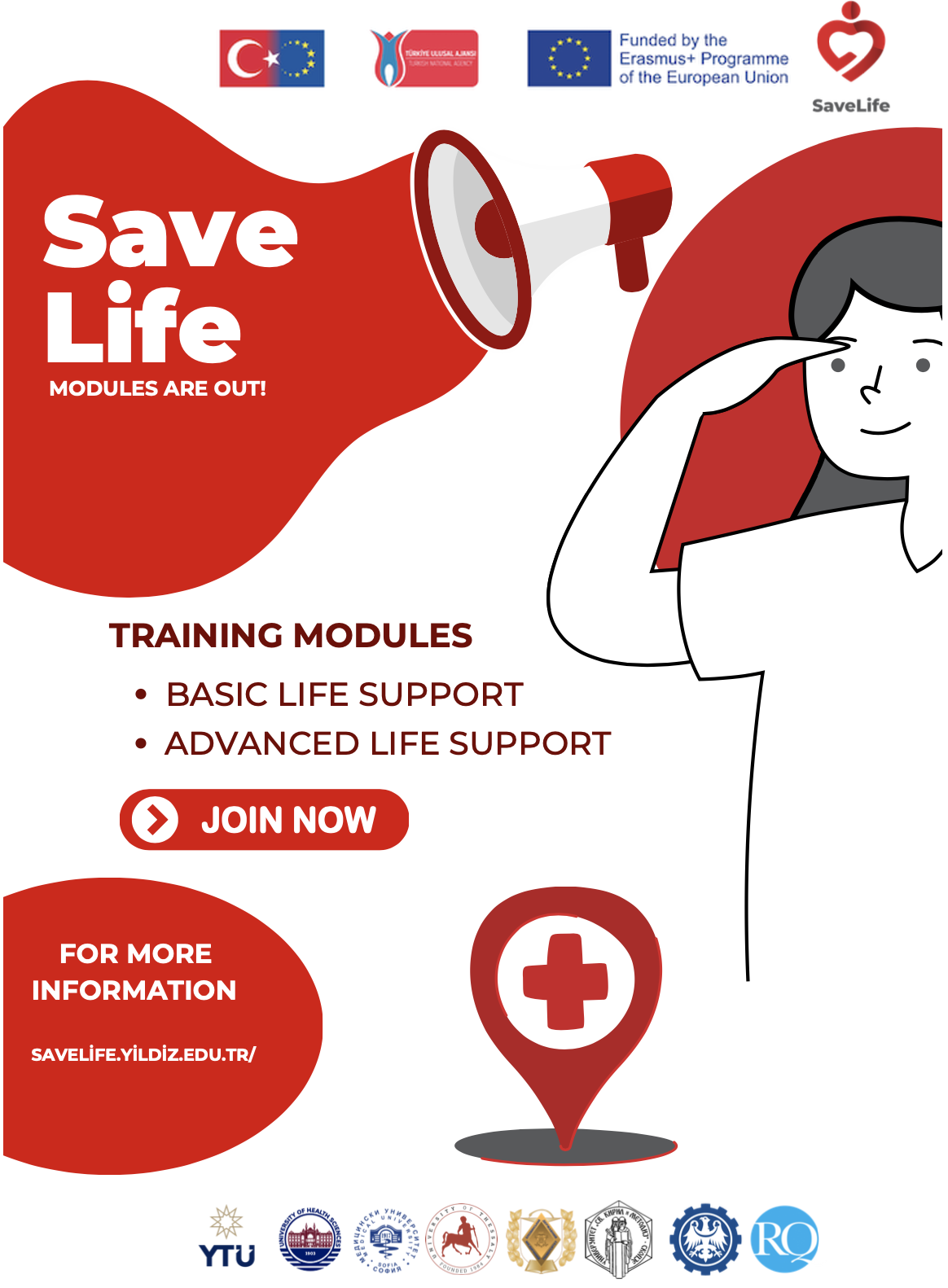The Faculty of Mechanical Engineering and the Faculty of Medicine at Ss. Cyril and Methodius University in Skopje have successfully contributed to the SaveLife Project, an Erasmus+ initiative focused on enhancing Basic and Advanced Life Support (B/ALS) training for healthcare professionals across Europe.
As part of this strategic partnership:
- The Faculty of Mechanical Engineering played a key role in designing the e-learning platform and developing educational materials, including course content and interactive training videos.
- The Faculty of Medicine structured the training modules, delivered user trainings, and will serve as a long-term beneficiary of the project outcomes.
The SaveLife Project (https://savelife.yildiz.edu.tr), funded under the Erasmus+ KA220 programme, aims to provide open-access, up-to-date online B/ALS training. These trainings act as booster courses or complements to on-site instruction, offering flexibility and continuity in life-saving education. The platform features a comprehensive modular course, interactive videos, and an e-book, all based on best practices in online B/ALS education.
Bringing together eight institutions from six countries—Türkiye, Bulgaria, Greece, Ukraine, Poland, and North Macedonia—the project fosters interdisciplinary and international collaboration. Partner institutions include Yildiz Technical University (coordinator), University of Health Sciences (Türkiye), Medical University Sofia (Bulgaria), University of Thessaly (Greece), Bukovinian State Medical University (Ukraine), Politechnika Śląska (Poland), and RQ Consultancy Ltd. (Türkiye).
The project targets medical students, university staff, nurses, paramedics, and general practitioners—particularly those operating in high-risk environments. By leveraging a digital learning environment, SaveLife ensures sustainable skill development and greater readiness for cardiac arrest management.
The collaboration between the Skopje faculties and European partners demonstrates North Macedonia’s active contribution to regional healthcare innovation, ensuring that future and current medical professionals have access to quality, flexible, and standardised life support training tools.
For more details, please visit the SaveLife project website.

